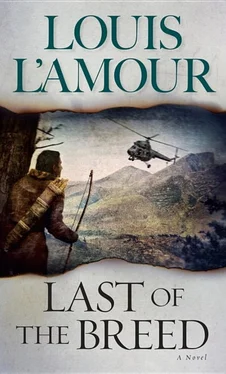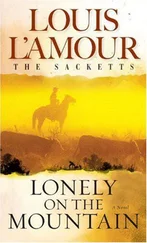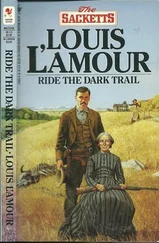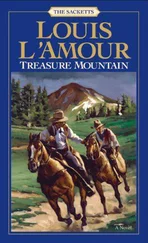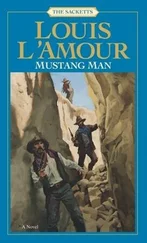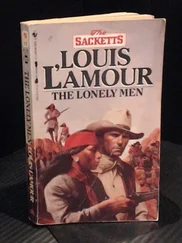Louis L'Amour - Last of the Breed
Здесь есть возможность читать онлайн «Louis L'Amour - Last of the Breed» весь текст электронной книги совершенно бесплатно (целиком полную версию без сокращений). В некоторых случаях можно слушать аудио, скачать через торрент в формате fb2 и присутствует краткое содержание. Город: New York, Год выпуска: 2010, ISBN: 2010, Издательство: Random House Publishing Group, Жанр: Триллер, Историческая проза, Приключения про индейцев, на английском языке. Описание произведения, (предисловие) а так же отзывы посетителей доступны на портале библиотеки ЛибКат.
- Название:Last of the Breed
- Автор:
- Издательство:Random House Publishing Group
- Жанр:
- Год:2010
- Город:New York
- ISBN:978-0-553-89935-1
- Рейтинг книги:3 / 5. Голосов: 1
-
Избранное:Добавить в избранное
- Отзывы:
-
Ваша оценка:
- 60
- 1
- 2
- 3
- 4
- 5
Last of the Breed: краткое содержание, описание и аннотация
Предлагаем к чтению аннотацию, описание, краткое содержание или предисловие (зависит от того, что написал сам автор книги «Last of the Breed»). Если вы не нашли необходимую информацию о книге — напишите в комментариях, мы постараемся отыскать её.
Last of the Breed — читать онлайн бесплатно полную книгу (весь текст) целиком
Ниже представлен текст книги, разбитый по страницам. Система сохранения места последней прочитанной страницы, позволяет с удобством читать онлайн бесплатно книгу «Last of the Breed», без необходимости каждый раз заново искать на чём Вы остановились. Поставьте закладку, и сможете в любой момент перейти на страницу, на которой закончили чтение.
Интервал:
Закладка:
The hide of the mountain goat he had taken needed work, and he began it as soon as he had eaten, scraping the inside of the hide clean. The hair was pure white, or so it seemed until matched with snow, and then it took on a creamy-white color. With some of the leather remaining from an earlier kill of an elk, he cut out a pair of moccasins to replace the worn ones he wore.
From where he worked he could see the end of the trail down which he had come. It was partly obscured by aspens growing out of the side of the cliff, trees that had been bent down by a weight of snow, now melted or blown away. He had seen several such places on his way along the cliff face.
Huddling over his small fire, he thought out his plan for those trees, knowing what he must do and thinking how best to do it. He had rigged many snares for wild animals, often using spring pole snares. This would be a variation. He had to fight with what he had.
Where now was Natalya? Did they still live in the makeshift village where he had discovered them? Or had they already begun their trek to Plastun Bay or its vicinity? And how could he ever live up to his promise to get them out?
The buffer zone extended all along that coast, and any plane attempting to penetrate it would be shot down. The Soviets had already shown their readiness to shoot down even an innocent passenger plane if it accidentally invaded their airspace. Yet he would find a way. Somehow he would find a way.
A cold wind blew down the raw-backed ridges, and a faint sifting of blown snow came down, icy particles that stung the skin. He went back into the trees and pulled deadfalls together to make a crude shelter, gathering boughs for a bed. The sky above was amazingly clear; the stars seemed to hang like bright lamps just above the canyon’s edge. Far below, he could hear the roar of the water, but a distant sound.
If he made no tracks he would leave no tracks. He would, if possible, stay right here for several days, but first he must find an escape route, and he must be prepared for planes or helicopters flying over.
These canyons were wild, almost completely unexplored except by a few passing hunters, and since coming to the area he had seen no signs of man, nothing at all.
At daybreak he went back up the narrow trail down which he had come, scarcely a trail at all, just a route along the cliffs, moving from ledge to ledge. Finding a place where the aspen grew almost horizontally from the bank, he selected one and drew it back, hauling on it until it was bent like a bow. Fastening it there with a trigger to be released by a trip string across the trail, he concealed the trip as much as possible and stepped back to survey it. The young aspen, drawn taut, would be released by the trip string and would swing around like a whip, knocking a man from the trail into the canyon if it did not break his neck or crack his skull.
A mountain goat using the same trail, if it tripped the release, would pass safely beneath it.
Spring came quickly in this northern land and disappeared just as quickly, yet it was weeks away even though here and there ice was melting briefly during the day, only to freeze again at night.
Carefully, foot by foot, he explored the little valley. When he found the escape route he sought, it was wild animals that showed him the way, as he had expected. At the back end of the place where he had built his fire, there was a hollow choked with a thick stand of birch. The animal track skirted it along the rock wall and then dipped down through a mere crack, descending steeply into a rock-walled hollow where he found an overhang with a crude rock parapet of fitted stones, obviously very ancient. Some man or men had taken shelter here in some bygone age. No signs of fire were on the floor of the overhang, these having long since turned to dust. Overhead there were smoke-blackened rocks.
Following the narrow animal trail further, he found that it branched, one branch going up, the other down. This had been, he decided, a trail used by whoever had built the shelter. In places, sections of it had fallen away into the void below; in others, rocks from above had almost blocked the trail, but it led to the top of the plateau. Perceiving this from some distance, he went no nearer, so as to leave no tracks where they might be seen. The trail seemed to emerge in a small grove of birch, several of them having grown up in the trail itself. Retreating, he prepared several traps, which he would remember but which might deal with anyone venturing to explore the area.
For four days then he ate, slept, and searched out the area. It was possible, he discovered, to climb through the forest on the mountainside to a ledge above his hanging valley, and from there a steep path, used by mountain goats, led down into the depths of the canyon.
On the fifth day a plane flew over the mountains, a small plane that could fly very slowly, searching the terrain. Joe Mack remained hidden, watching it, thankful he had been wise enough never to walk the same route twice and so to leave no tracks that could be seen. The search was on now, so no matter how cold, there must be no fires.
The search would be on the ground as well, and undoubtedly they had some kind of a lead to bring them here. It could be mere routine, but he did not believe so.
He worked on making moccasins and preparing a coat from his goatskin.
He doubted they would find how he had come to this place or even realize it existed. Flying over, it was just one more narrow place in the rock walls of the canyon, choked with trees. There would be many such, some reachable, some not. Back in Idaho he had seen old mines and cabins clinging to walls that seemed completely inaccessible. So it must be here. But there was nothing in this place to draw attention.
He would remain quiet for another three or four days, possibly longer. Impatience would be his greatest enemy, although he still had far to go.
Could he make it in the short time of warmth? The ice in the rivers usually broke up in April and by the end of August would be freezing again, or could be. There seemed no way he could cover the vast stretch of country before him in the short time available, especially as the country would be increasingly more open, with much tundra and no cover. At least, there was not much cover until he reached the Anadyr Mountains. Somehow he must cross the Kolyma River and then the Omolon. Beyond that was the limit of the trees.
Crouching under the trees he heard a plane fly over again. Had they found something? Or were they just prowling?
Another long winter? In a still more barren country? He shuddered at the thought. How much could he stand? It seemed sometimes as if he had never been warm and comfortable. Night after night and day after day of piercing, unbelievable cold when he dared not relax, not for one minute, lest he make a mistake and die. It needed but one error, however trivial.
Thinking of another winter, he was close to despair. Could he survive? How? It would be infinitely worse here than further south. By the time another winter came he would be inside the Arctic Circle.
Gloomily, he stared into the coming night. And where was Natalya? Her father? How did they fare? And what had become of Yakov? Of Botev and Borowsky?
So much was happening of which he knew nothing.
Suppose, the idea came to him suddenly, he should try living out the winter in a town? He needed shoes, but he had a suit and one shirt.
Suppose, just suppose, he could do it? Where would he find shelter? How would he obtain food?
Yet it was something to consider, and by now they would be convinced he was only a wilderness man.
And what town? Magadan? It was the closest, but he would be putting himself in the enemy’s territory. He was an Indian, and the wilderness was his. He was a part of it. He belonged here. But in a town?
Читать дальшеИнтервал:
Закладка:
Похожие книги на «Last of the Breed»
Представляем Вашему вниманию похожие книги на «Last of the Breed» списком для выбора. Мы отобрали схожую по названию и смыслу литературу в надежде предоставить читателям больше вариантов отыскать новые, интересные, ещё непрочитанные произведения.
Обсуждение, отзывы о книге «Last of the Breed» и просто собственные мнения читателей. Оставьте ваши комментарии, напишите, что Вы думаете о произведении, его смысле или главных героях. Укажите что конкретно понравилось, а что нет, и почему Вы так считаете.
